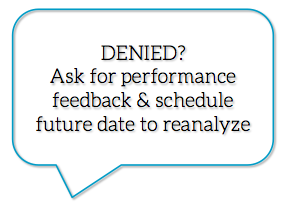How to Ask for a Raise: Attorney Edition
August 10, 2016
Take a moment to step back and analyze your current role and your job description. Do you strongly feel that you exceed expectations, succeed as an individual attorney and within a team, and are still being underpaid? Then it might be time for you to request a raise! According to PayScale, 75% of people who ask for a raise get one, and only one in four are declined, says Huffington Post. Why aren’t the other 25% of people asking for raises? Because they don’t know how. In your career, asking for a raise can be one of the most stressful parts of moving forward. Many people are uncomfortable with asking for more money and appearing pushy, but this is no excuse to wait for a raise to drop into your lap! Speak up for what you want, in the right way.
(1) Check company policies first.
Typically, large law firms and legal departments have a standard structure to assess salary increases, and it often focuses on performance reviews and performance metrics. Smaller firms and companies are less likely to have standardized salary policies, and as a result, the decision to grant a raise can often be more opaque, with a variety of influencing factors. Refer to your company handbook for further details to make sure you are knowledgeable about existing policies.
(2) Timing is everything.
Timing does matter. While this process may be stressful for you, it’s just as stressful for your boss (who must ultimately decide whether you’re worthy of a raise) and your firm.
-
Avoid discussing this with your boss spontaneously. Schedule a time to chat that works with your boss’s schedule. Be strategic; avoid scheduling a meeting prior to critical meetings, presentations, or deadlines.
-
Determine if the firm or company is economically stable. The worst time to request a raise is when revenue is suffering or amidst restructuring. While it may be frustrating to wait for the right moment, it’s important to think strategically.
Take a look at your firm’s calendar and plan ahead.
(3) Make a case for yourself like the attorney you are.

You’re an attorney, you’ve done this plenty of times in court; now it’s time to make a case for yourself! The “you-like-me, I-like-you” method won’t apply here. Present your experience, accomplishments, and goals in a way that demonstrates your value to your firm.
-
List your accomplishments. Determine what is important to the firm first, and then highlight your accomplishments in tandem with the firm’s values, revenue goals, and performance goals.
-
Present your goals for the future. While it’s important to mention what you’ve done, it’s doubly important to tell your boss where you see yourself going. Discuss your future at the firm, any personal goals or milestone you intend to hit, and how your work will positively influence the growth of the firm.
-
Do your research and have a number ready. Prior to meeting with your boss, you should research your role, the industry standard salaries, and the current market rate. Having these numbers prepared will demonstrate your seriousness in this request, but will also give your boss a ballpark idea of what you have in mind. There are a variety of tools to get you started. Consider our contract attorney rate guide, and visit Comparably.
(4) Avoid complaining.
Making a case for yourself also means presenting yourself as a professional individual who takes pride in their work. Avoid appearing petty and self-absorbed by not doing these things:
-
Do not make this personal. Getting this raise may mean the difference between paying off your law school loans, your mortgage, getting a new car, sending your children to a good school, etc., and while these personal issues may be convincing to you, they are unlikely to convince your boss that you deserve more.
-
Do not compare yourself to someone else.
-
Do not use an ultimatum. Ultimatums do not work. Your boss will not take kindly to being threatened to give you a raise, and using this method will speak volumes about your character, values, intentions, and career goals.
(5) Prepare for the response.
At this stage, there are two responses you should be prepared for: Yes or No. In the evident that your raise is accepted, remain professional even though you want to cheer. Thank your boss for their time and consideration, and highlight that you’re looking forward to continuing working alongside them. Pro tip: Avoid boasting to your colleagues.

But what if your raise is declined? Remaining professional in the face of rejection is key; your boss will be watching how you behave. It’s okay to appear disappointed, but take this as an opportunity to gain feedback from your superior and do better. Ask what can be done to reach a raise-worthy stage, and schedule a future date to reanalyze.
Don’t wait for your raise to be handed to you on a silver platter. Proactively plan your request and execute with strategy and confidence, while keeping your expectations in check, to ensure the forward projection of your career.
There’s nothing holding you back, so why not take the next step to advance your legal career?